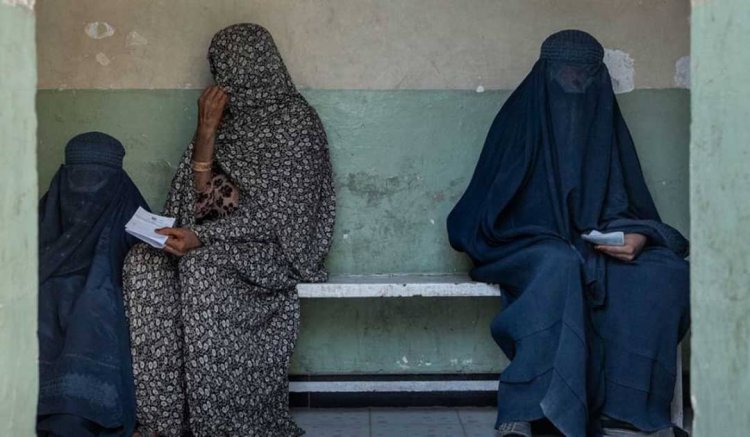The Struggle for Divorce: Women’s Rights Under Taliban Rule

Since the Taliban’s return to power in Afghanistan, the country’s legal and judicial system has undergone fundamental changes. One of the most affected areas is family law, particularly women's right to divorce. A recent report by the Afghanistan Analysts Network shows that, in the absence of a clear legal structure and with the annulment of previous regulations, many women have lost the ability to formally separate from their husbands. Under Taliban rule, courts only follow Hanafi jurisprudence and often reject women’s requests for divorce.
The AAN report titled “The Doors to Separation Are Closed for Women: Women and Divorce Under the Emirate” is based on interviews with four women and five lawyers across different provinces of Afghanistan. The findings reveal that under Taliban rule, divorce has become nearly impossible for women. Court judges sometimes consider divorce a “sin” and force women to continue living with their husbands, even in abusive or difficult situations.
The lawyers interviewed by AAN confirmed that since the Taliban’s return, it has become much more difficult for women to separate from their husbands. None of the lawyers reported a successful divorce case (tafriq) being granted by the courts since the takeover, and all agreed that divorce is now practically banned.
Qudrat, a lawyer in Herat, said: “In the past three years, many women have requested divorce, but we have not been able to help them. Since court-ordered separation (tafriq) is no longer possible, we cannot assist them. In every province I know, many women want to divorce but avoid going to court because they know their cases will not be heard.”
Rahmat, a lawyer in Kabul, confirmed this and added: “I believe violence against women has increased under the Emirate because women’s cases are not being addressed. Just last month, I received three domestic violence cases in which the women sought divorce. We were only able to resolve one. The other two women decided to stay in their marriages after we explained that there was no legal path to divorce and we arranged mediation with their husbands.”
In September 2022, the Taliban leader issued a decree stating that only Hanafi jurisprudence should be used for divorce rulings, and that all cases previously judged under the laws of the former republic should be suspended. Later, in January 2024, another decree stated that divorces based on any of the four schools of Islamic jurisprudence according to the Sunnah would be accepted only if they strictly followed that school’s principles. However, in April 2024, the Taliban Supreme Court officially emphasized that most divorces remain suspended “until further notice,” except for specific cases like khulʿ (a form of divorce initiated by the wife), prolonged disappearance of the husband, or incurable conditions such as sexual impotence.
According to AAN’s findings, khulʿ has become the most common form of separation under Taliban rule. Lawyers told AAN that all resolved cases since the takeover have ended in khulʿ agreements. Khairullah, a lawyer in Bamiyan, said he received about ten divorce cases after the Taliban returned, most of which were settled through khulʿ. In these cases, women gave up their mahr (marital dower), and some even paid additional compensation to their husbands.
Among the women interviewed by AAN, two who successfully divorced did so through khulʿ.
Nargis from Kabul, who sought divorce due to abuse and her husband’s infidelity, faced rejection from the court. The court told her: “Divorce is a sin. Why would a woman even want a divorce?” Nargis explained that her husband gambled, had affairs, and physically abused her, but the court dismissed her complaints and told her to return to her husband. Ultimately, she was forced to seek khulʿ. Her in-laws initially demanded one million Afghanis, but they finally agreed to a settlement in which she returned her jewelry, phone, and dowry.
Yasamin, who lives in Balkh, also separated through khulʿ. When her husband refused her divorce request, she sought mediation from elders and clerics, but her in-laws insisted that the divorce must follow Sharia. “This was just a way for them to demand money from me,” she said. “They told me they would allow the divorce only if my family paid them.” In court, the judge told her she had to remain married. Eventually, her family hired a lawyer and paid 50,000 Afghanis to secure a khulʿ divorce.
Both women gave up their mahr during the process. The report stresses that if khulʿ is the only legal route to separation under Taliban courts, women who are poor or lack family support are especially vulnerable, as they cannot afford to pay financial compensation. Moreover, giving up mahr and wedding gifts leaves women with nothing after the separation. Khulʿ also requires the husband’s consent, which often involves costly mediation and legal fees.
Rahmat confirmed that khulʿ is financially out of reach for many: “Women with access to legal counsel and supportive families usually find ways to overcome these challenges. I’m handling four such cases because the families are wealthy and can pay for legal representation. But women without family support face serious obstacles in resolving their cases.”
The report also warns that many Afghan women are unfamiliar with the divorce laws under Hanafi jurisprudence, as well as the judicial procedures, leading to confusion and inequality in the divorce process.
Since the Taliban abolished the Ministry of Women’s Affairs, women’s awareness of their rights has diminished due to the lack of official support and outreach. In addition to this legal unawareness, women are burdened by intense social and cultural pressures—most families do not support divorce and consider it a source of shame. Currently, the combination of Taliban’s restrictive laws and social traditions has left many Afghan women with few options to escape violent or unwanted marriages.
